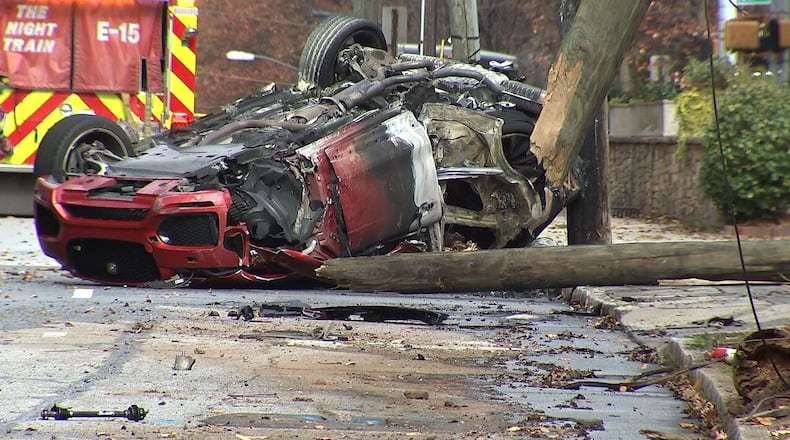Coming off the city’s most violent year in decades, Atlanta police have reinstated a controversial policy halted just one year ago.
As of Dec. 30, officers are again authorized to chase suspects, though with new restrictions, The Atlanta Journal-Constitution reported this week. The Police Executive Research Forum, contracted by the city to conduct a top-down review of APD policies and training, provided guidance to command and training staff who crafted the revived policy, APD Interim Chief Rodney Bryant said.
He stressed that the department has adopted safety-oriented measures that were not present in the old policy scrapped last January by former Chief Erika Shields.
“The policy itself is much more restrictive than it has been in the past,” Bryant said. “After we added significant restrictions to it, we lifted the suspension.”
Shields, who this week was named Louisville’s new police chief, had concluded that the existing policy put innocent citizens at too great of a risk.
“Please know that I realize this will not be a popular decision; and more disconcerting to me personally, is that this decision may drive crime up,” she said in a memo to APD supervisors at the time.
APD had just come off a month that included three deaths following police pursuits. In one incident, fleeing suspects struck and killed two men who were caretakers for sick or disabled family members. The same month, a woman was killed by a suspected car thief who had smashed into her car trying to evade cops.
The new protocols allow officers to pursue only suspects who have committed “forcible” felonies, ranging from murder to involuntary manslaughter, and present an imminent threat of death or serious injury.
A supervisor must approve a chase, and no more than three police cruisers can join in, the policy states.
City Councilman Michael Julian Bond said the policy needed to be reinstated.
“Hopefully that will deter some of the crime from happening,” he said. “If they know you’re not going to chase them, they’re going to come here and cut up.”
Law enforcement agencies nationwide had been limiting pursuits long before APD did.
As of the middle of the past decade, about 20 percent of police departments allowed pursuits only for felony offenses, while half required the chase to end when a suspect had been identified, according to a report by Popular Mechanics. Almost all require a supervisor’s approval, the magazine found, as APD now does.
Still, vehicular pursuits by police remain a deadly reality on America’s roads. In June, seven people were killed and three injured in a crash in El Paso, Texas, involving a motorist fleeing from border patrol agents.
And in December, with the no-chase policy still in place, two people in a Jaguar, allegedly stolen from a Midtown hotel parking lot, died after crashing head-on into a utility pole as they tried to flee from police. An APD spokesman said an initial review found that the pursuing officer had likely violated the policy.
A 2017 report by the Bureau of Justice Statistics found that 351 people in the U.S. were killed in 2012 as a result of police chases. From 1996 to 2015, fatal crashes in police pursuits led to more than 7,000 deaths — an average of roughly one chase-related fatality per day.
Bond said he was involved in a similar incident several years ago. He and his son were almost killed after their car was T-boned by a fleeing driver.
“Police told me if I had been going 5 mph faster …” the councilman said.
Mark Hampton wasn’t so fortunate. He was on his way to a pharmacy to pick up medication for his disabled son when he was hit by two teens speeding through the city in a stolen SUV.
“I think it’s terrible,” said Hampton’s mother, Deborah Hampton, about APD reviving its chase policy. She said Friday she is still reeling from her son’s death.
“I miss his phone calls,” she said, adding they talked daily, often three to four times.
Hampton said the risk to innocent civilians far outweighs the reward of apprehending a lawbreaker.
“They’ll be caught eventually,” Hampton said. “It’s not worth the hurt and pain I go through every day.”
— AJC staff writer Shaddi Abusaid contributed to this article.
About the Author
Keep Reading
The Latest
Featured



